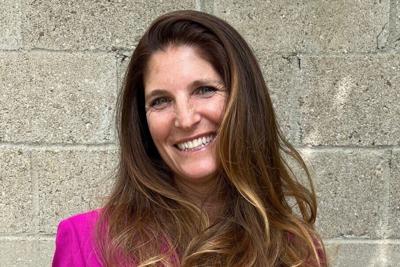▓¤╠řMy sister is constantly asking our dad to do things for her, from making her a coffee, to driving her to a friendÔÇÖs, to booking her a massage. HeÔÇÖs always done this kind of stuff for us because our mom is an ER doctor and works crazy hours. Dad has very flexible hours and often works from home; heÔÇÖs our go-to person.
But my sister is 22. She can make her own coffee, walk to her friendÔÇÖs and set up any appointment she wants. IÔÇÖve talked to my dad and he always says he doesnÔÇÖt mind. I know he loves making our lives easier, so none of it is a big deal.
The problem is when she asks and he says no. She loses her mind. SheÔÇÖll go nuts if he says he canÔÇÖt drive her somewhere exactly when she wants to go. IÔÇÖve even offered to drive her, but thatÔÇÖs not good enough.
What kind of dynamic is going on here and how can I stop it?
Distraught Sis
┤í╠řItÔÇÖs not for you to change the dynamic. Your father and your sister need to figure it out between themselves. However, you could try a few different techniques: You could discuss everything with your mother and see how she feels. If sheÔÇÖs on board, you two could try to have an intervention with your dad and sister.
If that doesnÔÇÖt work, you and your mom could insist they go to counselling together to figure out why they have this dynamic. Your father sounds like a pleaser, but also a hands-on parent. Separately, those arenÔÇÖt bad traits. Together, they may cause overkill. But that depends directly on what type of personality your sister has. HeÔÇÖs the same person with you and you donÔÇÖt act the same way.
Your sister sounds as though she has some impulse issues and has been spoiled. Your father needs to set some boundaries. I strongly suggest they get counselling.
▓¤╠řWhy do people insist that moving out of your parentsÔÇÖ house is necessary to prove youÔÇÖre a grown-up?
IÔÇÖm a woman in my late 50s whoÔÇÖs always lived at home. I still live in the same room I grew up in. IÔÇÖm now retired, but I always paid room and board and all my own expenses. I own my car, do my own laundry and cleaning and prepare my own meals.
IÔÇÖm a quiet person, and living with roommates never appealed but I also didnÔÇÖt want to live alone, so staying at home seemed a reasonable choice, and my parents agreed. When my mother battled ParkinsonÔÇÖs, I was able to help care for her, and now that my 87-year-old father is ailing I can keep him home. IÔÇÖve gradually taken over most household tasks and now ferry my father everywhere.
In many cultures itÔÇÖs normal and even expected that parents and adult children share a household. I donÔÇÖt understand the disdainful attitude most North Americans have regarding this arrangement, which harms no one and can contribute to family unity.
I think itÔÇÖs practical and financially savvy for adult children to live with their parents, if the relationship is mutually respectful and beneficial.
My brother moved out as soon as he finished university because he wanted to live downtown, stay out late, have parties, etc. That was him.
Why do people always assume itÔÇÖs an adult childÔÇÖs ‘failure to launch?’
Happy at ╔ź╔ź└▓
┤í╠řTo each their own, as you say. YouÔÇÖre right ÔÇö itÔÇÖs the cultural norm for many, but not here in North America as much. I think it really depends on the person, the parents and the situation. For some, it is a social issue; for others, like yourself, it was the right thing to do.
FEEDBACK Regarding the unrecognizable granny (May 30):
Reader: ÔÇťThereÔÇÖs something called frontotemporal dementia that can change behaviour of individuals, making them less inhibited. The behaviour can change gradually over time so it may not be obvious to family and friends. The family should have Granny checked out as it sounds like her behaviour is very out of character.ÔÇŁ
FEEDBACK Regarding linguistics of they/them (March 12; June 5):
Reader: ÔÇťI understand ÔÇśtheyÔÇÖ usually refers to more than one person. However, I have found it very helpful to remind myself about the singular ÔÇśthey,ÔÇÖ specifically in a lost wallet scenario.
ÔÇťIf you found a nondescript lost wallet, you might say, ÔÇśsomebody lost their wallet. They are probably worried right now. TheyÔÇÖre likely looking for it.ÔÇÖ
ÔÇťWhen I tell people that our youngest is non-binary, I sometimes share that the grammar confused me until I figured out the ÔÇślost walletÔÇÖ mindset. Others often appreciate the tip.ÔÇŁ


























To join the conversation set a first and last name in your user profile.
Sign in or register for free to join the Conversation